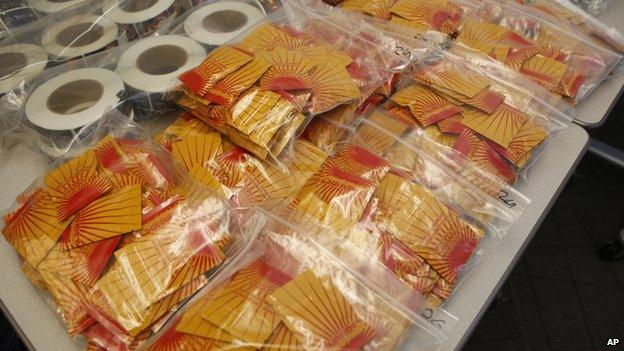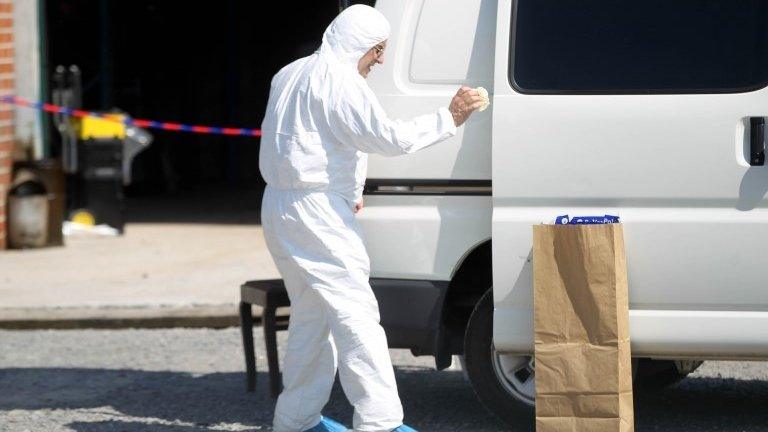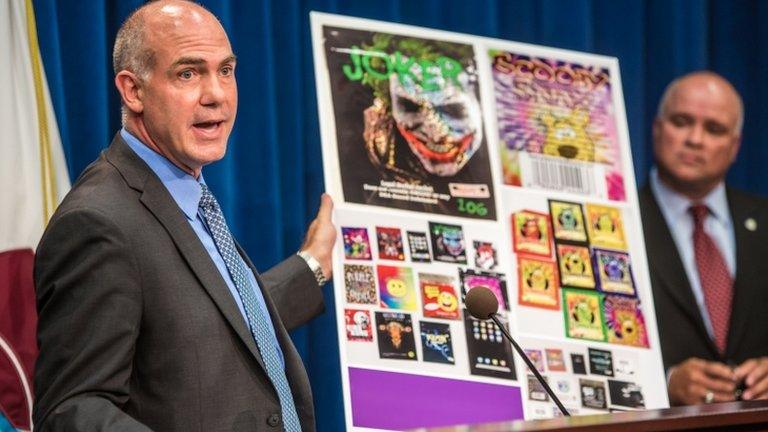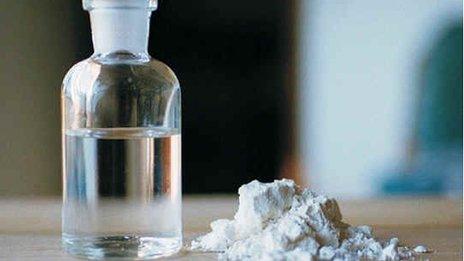UN warns of unprecedented growth in synthetic drugs
- Published

Authorities in countries such as the US are struggling to deal with the effects of the new drugs
Synthetic drugs such as methamphetamines and so-called "legal highs" are undergoing an "unprecedented global expansion", the UN has warned.
Nearly 350 new psychoactive substances (NPS) have been identified, the UN's Office on Drugs and Crime (UNODC) said.
Emergency services are struggling to treat users of the drugs, the office's latest World Drug Report, external warned.
New methamphetamine supply routes and production centres in West Africa and Iran were also identified.
The UN warned that the new NPS, or designer drugs, had gained popularity and were no longer restricted to niche markets.
These drugs are not under any form of international controls and are often bought and sold online. They can often be as dangerous as more common drugs.
Many legal highs are designed to mimic the effects of other drugs such as cannabis and ecstasy.
The number of types of synthetic cannabinoids rose from around 60 in the middle of 2012 to 110 last year.

New psychoactive substances
Synthetic substances that mimic effects of traditional drugs such as cannabis or cocaine
Number of known NPS rose from 166 in 2009 to 348 in 2013
Main NPS include mephedrone ("M-CAT" or "meow meow"), BZP, Spice, ketamine ("kit kat")
Many sold openly, including via the internet
Can be "far more dangerous than traditional drugs", UN says

Despite the increase in the number of different synthetic drugs and warnings about their dangers, no new psychoactive substances have been added to a list of internationally controlled substances since 2009.
The report said that it was too early to tell whether efforts to ban some substances by individual countries had led to a decline in long-term use of the drugs.
Treatment worries
The report also warned that many users buy new psychoactive drugs believing that they are more common substances such as ecstasy.
Users were also mixing different kinds of drug, making it more difficult to receive the correct treatment.
The drugs themselves could also be tainted by other substances, causing further complications, the report warned.
The UK became one of the only countries to ban a formerly "legal high" when it classified mephedrone as a class B drug in 2010.
- Published23 August 2013

- Published27 June 2013

- Published26 June 2013
